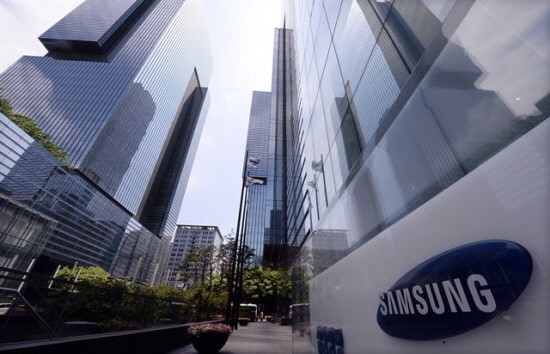Samsung
What Lee Jae-yong’s absence means for Samsung, Korea
[THE INVESTOR] Nearly a week after Samsung Group’s de facto leader Lee Jae-yong was arrested, the tech giant has been directly and indirectly emphasizing his absence may cause a serious leadership vacuum and undermine the tech giant’s position in and out of the country.
Other industry lobby groups also raised concerns that South Korea is facing an unprecedented situation due to Lee’s arrest, citing Samsung’s massive influence over Asia’s fourth-largest economy.
 |
“That Samsung and the South Korean economy are in crisis because of Lee Jae-yong’s absence is an exaggerated expression, but is partly true,” said Chung Sun-sup, the head of Chaebul.com.
Samsung may represent more than half of the South Korean economy, in terms of the influence it wields.
“In the stock market, if the share price of Samsung Electronics declines, the share prices of other companies falls,” he said referring to Samsung companies’ dominant status in the nation’s stock market. They account for 27.5 percent of the total market cap.
“Considering Lee holds absolute power in Samsung and unlimited loyalty from workers, it is highly probable that his absence could push the group deeper into a quagmire.”
Samsung officials said that Lee’s arrest had brought the group’s entire operation to a standstill, because he was not only the heir to the nation’s largest conglomerate but also the sole decision maker concerning the group’s key strategies.
“His absence means a considerable delay in Samsung’s future business,” an official said, speaking on condition of anonymity. “No one in Samsung could ever make final decisions on major deals, investment plans and corporate restructuring like he does. Samsung could lose its growth momentum if his absence is prolonged.”
Not only Samsung’s plan to acquire Harman International, a 9 trillion won ($7.88 billion) deal, but also other investments in new growth engines, such as Samsung Biologics, were carried out by the heir apparent himself.
“Even though we had Samsung as a global brand, we had zero recognition in the biopharma industry at the time we entered,” said Edward Kang, a public relations team leader at Samsung Biologics.
“Vice Chairman Lee was the one who decided to invest 3 trillion won in the company and sought business opportunities by clinching deals with top decision-makers at Roche and Bristol-Myers Squibb. It would not have been possible without him.”
Such speedy decision-making in management by the one, ultimate leader has allowed Samsung to take the lead in a fast-evolving industry, the officials say.
And such dependency on a single leader is parallel to the country’s dependency on a single conglomerate.
“Not only tarnishing the public image of the company, arresting Lee could expand negative perception toward businessmen and backtrack entrepreneurship,” the Korea International Trade Association said in a statement Feb. 18.
The reason for the KITA emphasizing Samsung’s role in the Korean economy is simple.
In terms of a quantitative perspective, the sales generated by Samsung Group’s affiliates account for 20 percent of South Korea’s gross domestic product. The size of Samsung Electronics’ sales dramatically surged from 46.4 trillion won in 2001 to 201 trillion won in 2016, along with the growth of its operating profit from 3.95 trillion in 2001 to 29.2 trillion won last year.
In terms of the size of annual revenue, Samsung Electronics -- a manufacturer of smartphones, semiconductors, consumer electronics and display panels -- has been chasing Apple closely while outpacing General Motors. Nearly 90 percent of Samsung Electronics’ sales were generated overseas.
Market impact
Despite the media frenzy, the market remained rather stable over Lee’s arrest.
Though Samsung Electronics’ stock price has been on a downward path since Jan. 26 when it hit a record high of 2 million won. It dropped to 1,893,000 won on the day Lee was arrested. However, it bounced back to 1.96 million won at closing price Feb. 22.
Lee’s arrest will have a negative impact in the short term. But in the long term, it would have limited impact as the tech giant is expected to continuously enjoy strong demand for memory chips and display panels by 2018, said Kim Dong-won, an analyst at KB Research.
“(Investors) could have negative sentiment in the case of the short term, but it appears to be an opportunity if the share price drops further down because the company has secured a clear picture until 2018 with a large improvement in performance lately,” he said, setting the price goal at 2.4 million won.
Foreign appraisers, Fitch and S&P also held an A+ rating on Samsung, while Moody’s maintains an A1.
Since Samsung’s businesses are managed by each affiliate, Lee’s absence will not impact daily operations, the three said. Samsung holds $75 billion in cash as of 2016, enough to pay total debts and expenditure for 2017, Moody’s said.
The arrest could cause delays in Samsung’s strategic decisions such as mergers and acquisitions, S&P said, adding that it could hurt the company’s status in the long term.
By Cho Chung-un/The Korea Herald (christory@heraldcorp.com)








